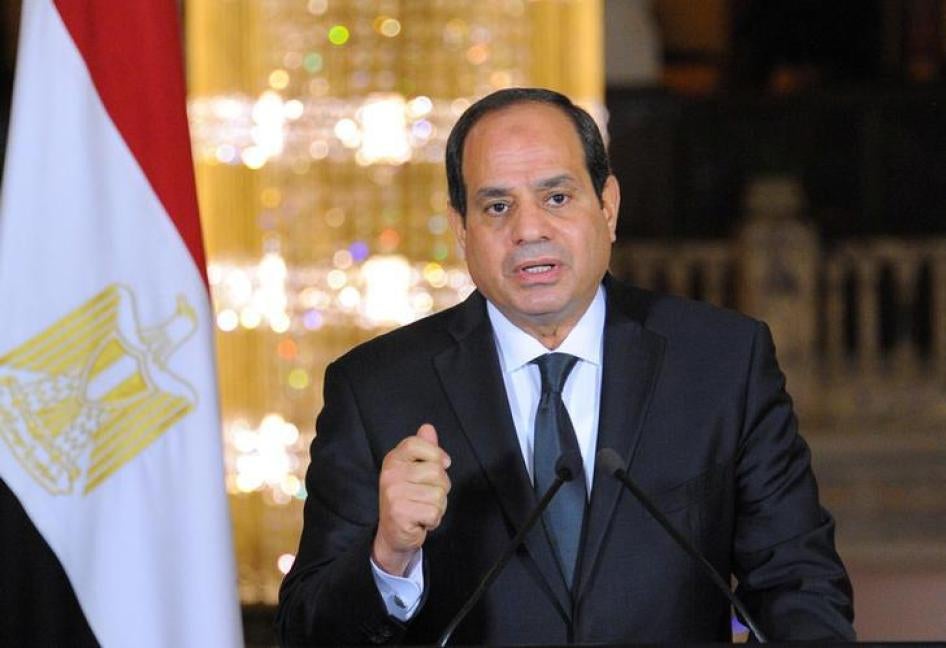Egypt concerned over prospect of emboldened Israel

Egypt’s concerns are growing over the prospect that Israel will be able to vigorously project its power across the region if it defeats or severely cripples Iran, according to The National on June 23rd.
Appeals for Egypt – once the Middle East’s political and cultural epicentre – to ensure it is adequately prepared to face Israel have become even more serious now that the US has joined the war against Iran.
The national conversation has revolved around this possibility since the initiation of hostilities by Israel. Political analyst and author Abdalla Senawy cautioned that “it’s not just Iran. The fate of the entire region is on the line.”
“We are at a historic juncture. If Iran is defeated … Egypt’s turn will eventually follow. This is the time of reckoning for Egypt before anyone else. Either it rises and makes its own fate or enters and stays in darkness for many decades to come.”
Egypt’s backing of Iran has been largely prompted by Cairo’s opposition to Israel’s conflict with Gaza, and US President Donald Trump’s pro-Israel stance. Trump’s plan to forcibly remove Palestinians from Gaza and resettle them in Egypt was also rejected by Cairo.
The regional instability has emerged at a time when the relationship between Egypt and Iran has strengthened, with closer relations being consolidated through energy and military co-operation.
According to official statements, Egyptian President Abdel Fattah El-Sisi has strongly condemned Israel in private meetings and calls with foreign diplomats as well as world leaders for attacking Iran and triggering the war on June 13th. However, he is yet to publicly discuss it.
The most recent talks held occurred on June 21st when El-Sisi spoke to Iranian President Masoud Pezeshkian over the phone just hours before the US struck three of Iran’s critical nuclear sites. The escalation was condemned by El-Sisi, who said that the war presented a major threat to Middle Eastern security and stability.
Without mentioning US involvement in any capacity, Egypt stated on June 22nd that it was “deeply worried about the latest developments” in Iran. However, the public statement does not truly illustrate the scale to which Egyptian concerns over the war’s ramifications have grown.
Cairo is worried that Israel and the US will soon initiate Trump’s plan to forcibly remove Palestinians from the Gaza strip and resettle them elsewhere, including in the Egyptian Sinai Peninsula. This proposal has been vehemently opposed by Egypt, who has warned that it would undermine national security, significantly harm the Palestinian struggle for self-determination and jeopardise the feasibility of the two-state solution.
Israel has also been criticised by pro-government media figures in Egypt, who have used their platform to try and alleviate Egyptian concerns by assuring that the nation’s President and military will curtail Israel’s ambitions to alter the region’s political arena.
Dr. Ahmed Al-Tayeb, the Grand Imam of Cairo’s Al Azhar Mosque, has voiced solidarity with Iran in light of Israeli aggression, denouncing Israel’s attacks in a post on Facebook. As the head of the foremost position in Sunni Islamic learning, his solidarity with the majority Shiite Iranians is particularly profound as it transcends Islamic sectarianism.
A US moderated peace treaty between Egypt and Israel which was signed in 1979 has since been seen as the bedrock of Middle Eastern stability. However, Egypt’s military doctrine maintains that Israel is Cairo’s principal foe.
Egyptian military drills predominantly revolve around the prospect of the Sinai Peninsula being the most likely theatre of future hostilities against Israel, as it was in 1948, 1956, 1967, and 1973.
Egypt possesses the largest army in the Middle East which is equipped with a cutting-edge arsenal procured from the US, Western Europe, Russia, and China. But Egypt is plagued by perpetual economic instability and is losing much of its allure as a regional cultural and arts hub.
In an open letter to President El-Sisi, US based political scientist and commentator Mamoun Fandy wrote that “Egypt needs smart partnerships with rational regional powers … that will create a ‘crescent of stability’ based on interests not ideology.”
“We don’t need a military confrontation to prove our presence but rather economic and political engineering that convinces the region and the world that Egypt remains the ultimate cornerstone of the Middle East. Mr President, history is not written through neutrality but is made with courageous and conscious positions.”
The Egyptian commentator, Amr Hashem Radia, has amplified Egyptian concerns over Cairo’s foreign policy by urging authorities to “open up the public space” and allow for greater freedom of expression. If this is done, Radia claims that it will help the government to make “unilateral decisions” if needed to deal with the fallout of the Israel-Iran conflict.
The National, Maghrebi.org
Want to chase the pulse of North Africa?
Subscribe to receive our FREE weekly PDF magazine












